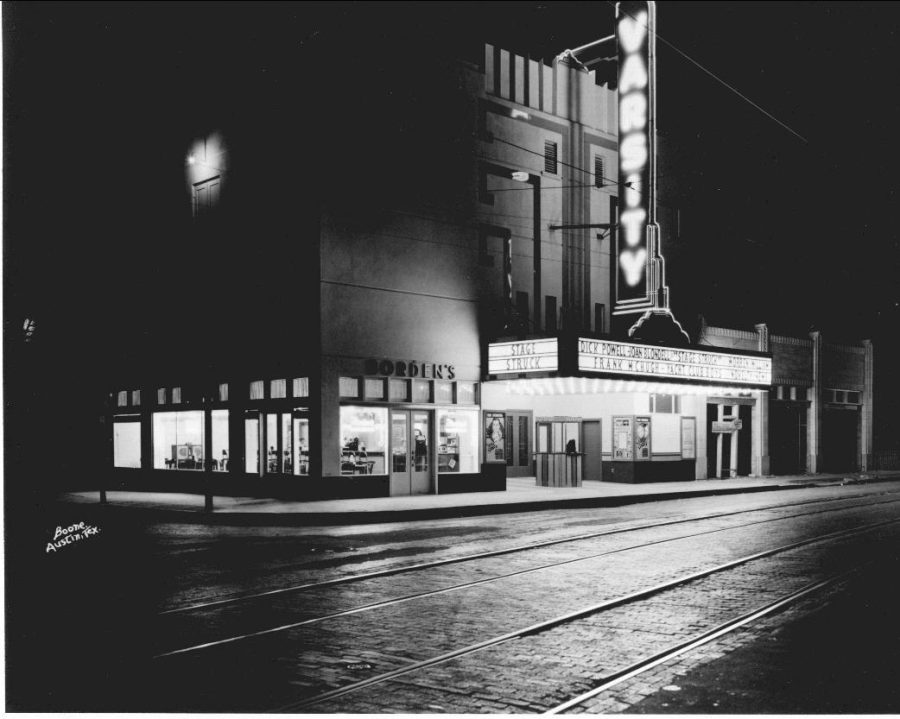Headsets were on and lights dimmed as the doors to Pulse: Echoes of Humanity, a Texas Immersive experience, opened to a group of 20 “test subjects.” Led by scientists in white coats through a series of tests, a future civilization intends to study the participants to rediscover how present-day humanity has not succumbed to technology and kept emotions intact.
“There are a lot of different types of immersive experiences,” said Erin Reilly, professor and founding director of Texas Immersive Institute. “What I try to focus on is immersive experiences that are narratively driven, that are story-focused.”
The Texas Immersive Institute, or TXI, brought their story to life April 11-13 at the Jesse H. Jones Communication Building. Designed and produced by the TXI capstone class, the project blended technology, theatrics and a compelling narrative to explore what it truly means to be human.
In development since fall 2024, Pulse immerses participants in the futuristic world of Metadyne Integration & Neural Development (M.I.N.D.). In this world, the Metadynes are future humans who embraced technology so much that they lost their humanity and traveled back in time to rediscover what it means to be human. Siena Theivagt, an informatics junior, elaborated on the creative process behind it all.
“(The) inspiration was how technology is getting so advanced,” said Theivagt, TXI social media content coordinator and experience designer. “There’s this thing called the singularity, which is when we get to a point where we become so intertwined with technology that there’s no turning back, so we were really playing with that idea.”
Reilly said in this simulation participants journey through investigating, supporting and dreaming test zones, each designed to study different human traits and emotions that will help the Metadynes restore their own human abilities and ultimately save their race.
“(The Metadynes) have embraced so much of technology … that they’ve kind of lost their humanity,” Reilly said. “So they’ve come back in time to study this ‘pulse’ they found here at Moody College of Communication, and your goal is to help, as a test subject, determine what really makes us human.”
The interdisciplinary project came with many opportunities for growth, especially around immersive technology and creative problem-solving. TXI writer Josh Bedingfield said effective internal communication across the team was key to success.
“I’ve learned so much about immersive technology and that whole world,” said public relations senior Bedingfield. “(We) ran into a lot of problems but learned about solutions. … Immersive requires so many different disciplines and so much thinking that over-communication is really important. I learned how important that is.”
Reilly divided the class into three collaborating teams, each containing the same nine roles, to ensure every student carried a clear responsibility while contributing to one unified story. Reilly said it took time for the groups to find their rhythm, but creativity eventually began to flow freely across teams.
“I think that was one of the hardest things for students, to get out of the ‘This is my activation,’” Reilly said. “(They then started) realizing that there’s a beginning, middle and end to the experience, and that they all need to be involved to make a cohesive story.”




















